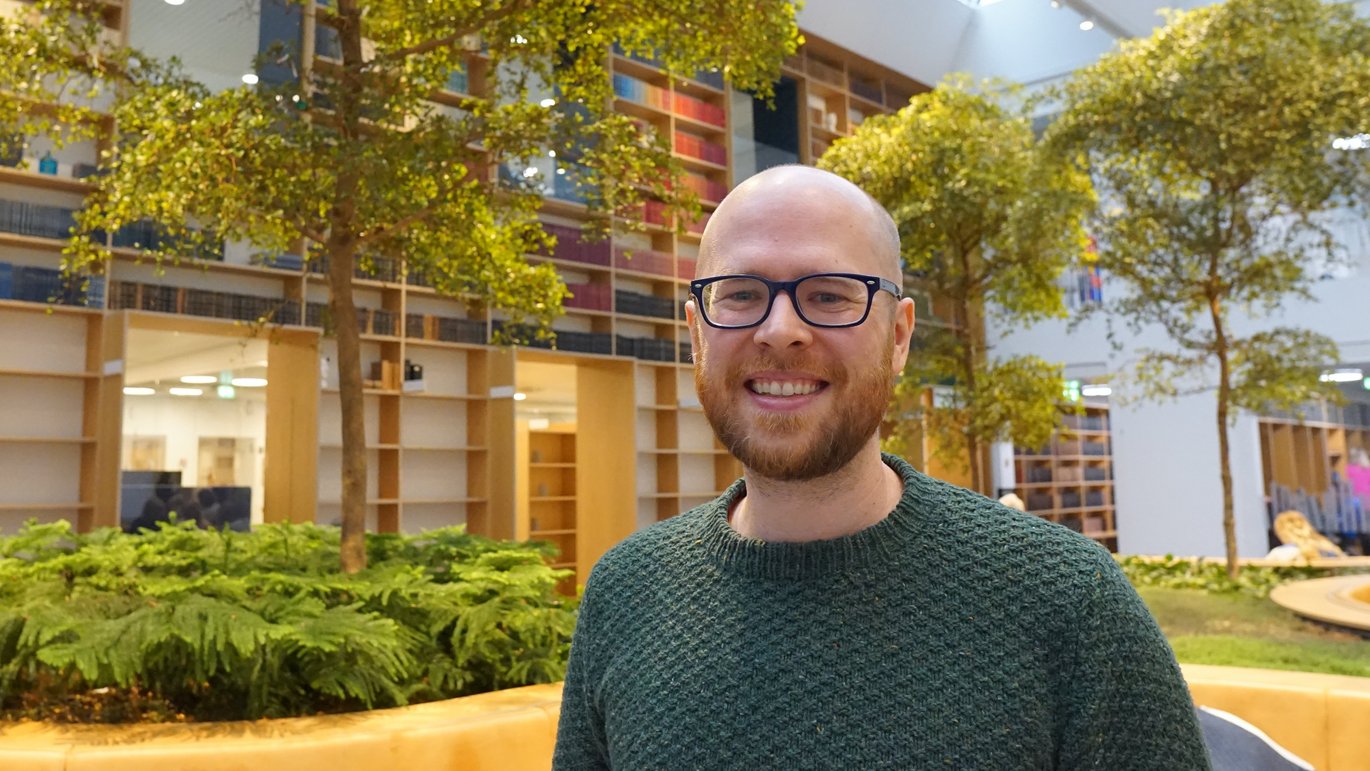Open Science: Should we set science free?
Concepts like Open Access and Open Science are slowly gaining ground in research. But we are still hopelessly behind, and researchers lack incentives to share data with colleagues, says Open Science advocate Luke Johnston.

What happens if all research results - including data - become accessible online for everbody to see and apply? And why do so few researchers share their data?
Canadian Luke Johnston, researcher and teamleader at Steno Diabetes Center Aarhus, works with developing software systems that create a more open data infrastructure. Here he gives his view on the matter on the occasion of last weeks International Open Access Week.
What made you get involved with this agenda?
“During both my Master’s and my PhD programme, I experienced how frustrating it can be working as a researcher because the data that we work with is both disorganised and difficult to access, so a large part of my time was spent just obtaining and organising data. It was a very frustrating situation, and I felt there had to be a better way to do things.”
The Internet is over 30 years old. Why is access to research and data still limited?
“Because of the way the system is designed. Universities and researchers currently receive funding on the basis of the number of publications they get published in prestigous journals, their impact factor and so on, so the system does not provide any incentive to make the research data freely available. At the same time, the big publishers make a lot of money through the system, so they have no motivation to change anything.”
Do you think that some researchers may refrain from sharing data because they don’t want others to mooch off their work?
“There are probably some who feel that way – perhaps especially among the older generation of researchers. The early career researchers who are often responsible for conducting the analyses – PhD students and postdocs – don’t publish data because they are afraid of looking like they don’t know what they’re doing. It’s the fear of being told that you’ve made a mistake.“
How does the perfect model that enables smoothless exhange of data look in your head?
"We can get a lot if inspiration from open source that has dominated the internet and the software industry for the past several years. Today the whole world runs on open source systems because it's free and everybody has the opportunity to contribute with developing the systems. People share back and forth, and if you see an algorithm or code from one project that can be applied in another you just take it without worrying about licenses, GDPR-rules and so on. This way of doing things can be applied in science and if more people have access to research output, science will evolve much faster."
Won't we flood the internet with massive amounts of poor quality research if we go down that path?
"In the beginning, yes, and there is a lot of garbage in the open source universe as well because it enables everyone to do a project. But eventuelly large and stable projects that works really well will develop and continue to develop. The same applies to science. If we can create a system that enables fast, safe and legal exchange of data researchers will be able to cooperate and benefit from each others work in a much more efficient way."
It sounds as though that would require some major changes in the system. Who should direct this development?
“Ultimately it’s a political priority. In Denmark it is very much the foundations that invest in research so it's about convincing the foundations to also earmark funds for the complicated tasks of managing, organizing and sharing the data so everybody can benefit from it. This kind of work is not valued today which is why it isn't a priority when researchers publish their work."
How can we have faith in the integrity of research without peer review?
"Many have the impression that peer review is the pinnacle and guarantee of quality. It's not. On the other hand, it is a very time-consuming process that slows down research. I think you can argue that if you publish your research and your data so that everyone has access to it, then you are subjecting yourself to the ultimate peer review.”
What would be the effect on research if we can find a model that makes it possible for researchers to quickly and easily exchange research data?
“It would create greater and faster progress in science, I’m in no doubt about that. Our Covid-19 response is a good example of what we can achieve when we work together. Normally, it would have taken several years to develop a vaccine, but because people were so quick to share and exchange information, we succeeded in less than a year.”
About Open Science
Open Science is an approach to the scientific process that focuses on spreading knowledge as soon as it is available using digital and collaborative technology.
Broadening access to scientific publications and data is at the heart of open science so that research outputs are in the hands of as many as possible and potential benefits are spread as widely as possible.
Aarhus University has it's own Open Access-policy. Learn more here.
Contact
Luke Johnston
Diabetes epidemiologist teamleader and researcher at Steno Diabetes Center Aarhus, Department of Clinical Medicine.
Mail: lwjohnst@clin.au.dk
Phone: +45 22597651